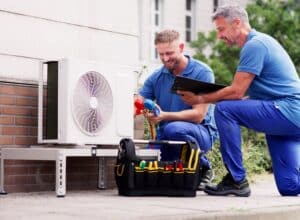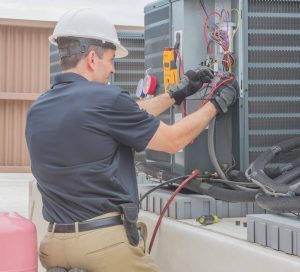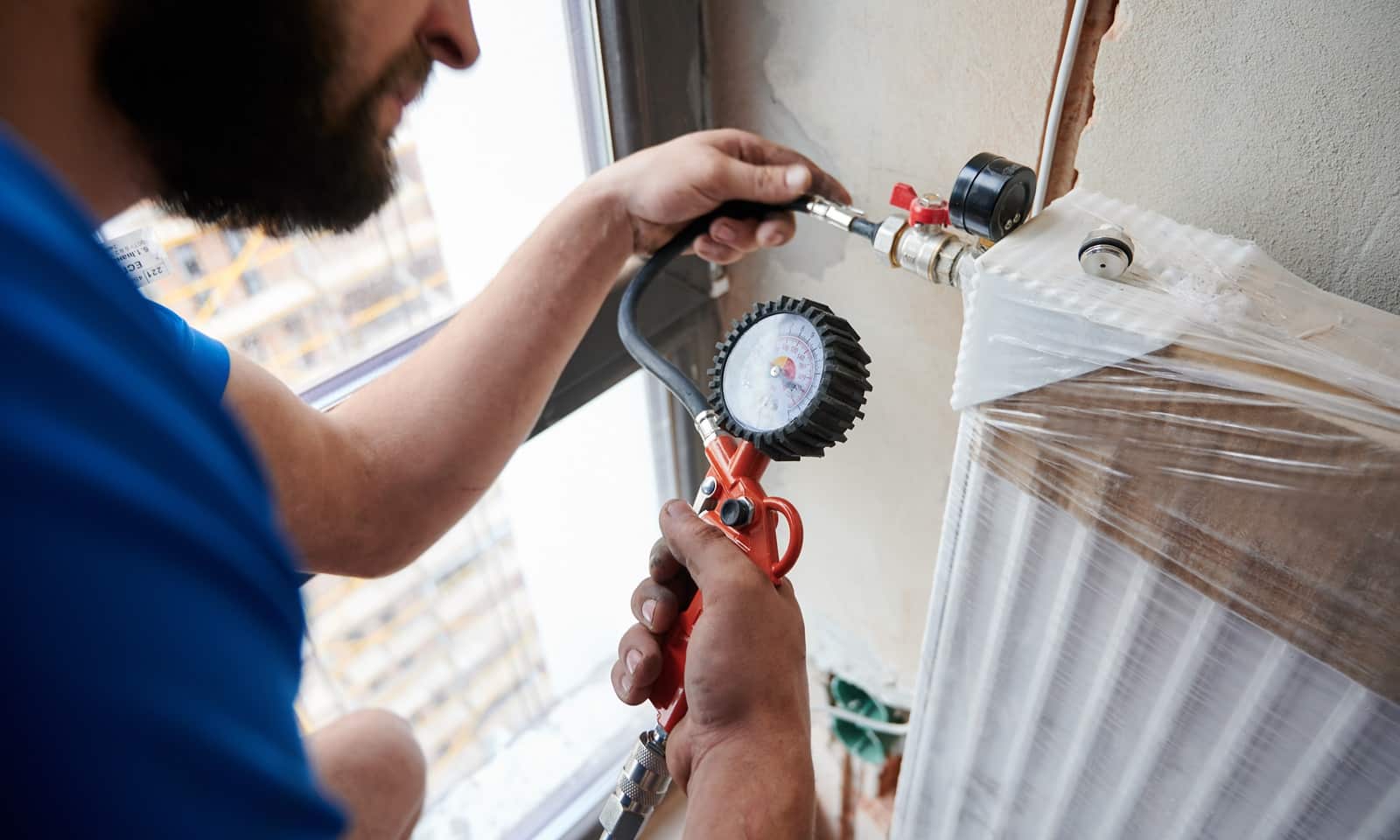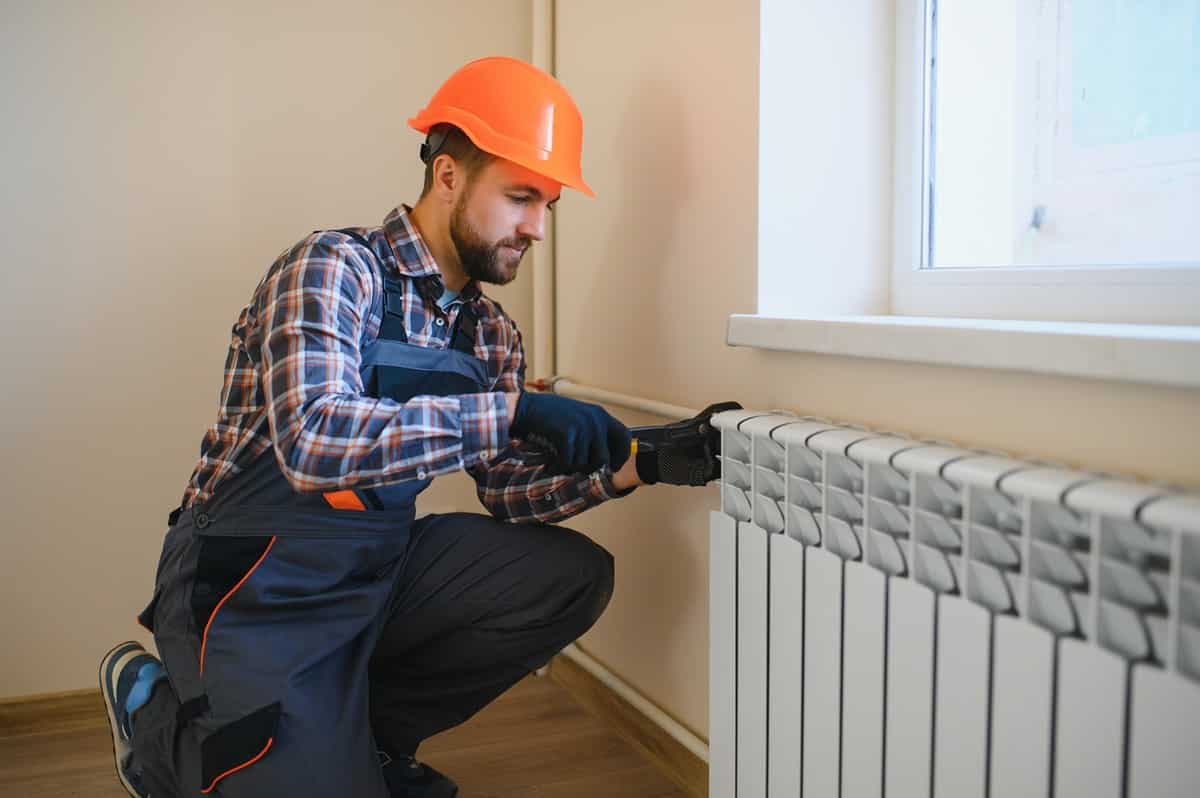 Air Source Heat Pump Guide For Landlords: Costs, Benefits & More
Air Source Heat Pump Guide For Landlords: Costs, Benefits & More
Are you a landlord in the UK feeling the pressure of rising energy bills and the push for greener living? You’ve probably heard whispers about air source heat pumps being the future of home heating, but are they really all they’re cracked up to be? Let’s take a deep dive into air source heat pumps and find out if they’re the right solution for your rental properties.

Table Of Contents:
Understanding Air Source Heat Pumps
How Air Source Heat Pumps Work
Types of Air Source Heat Pumps
Benefits of Installing an Air Source Heat Pump for Landlords
Reduced Energy Bills
Environmental Responsibility
Government Grants & Incentives
Enhanced Property Value
Considerations When Installing an Air Source Heat Pump for Landlords
Space Requirements for the Unit
Potential Noise from the Unit
Property Insulation Requirements
Choosing a Trustworthy Installer
Air Source Heat Pump vs. Gas Boilers
Making the Decision: Are Air Source Heat Pumps Right for My Properties?
Addressing Common Concerns
“Aren’t air source heat pumps expensive?”
“What about maintenance?”
“Will they actually work in the cold UK weather?
FAQs about air source heat pump
What are the disadvantages of an air source heat pump?
Is an air source heat pump worth it?
Why is my electric bill so high with an air source heat pump?
Are air source heat pumps any good in winter?
Conclusion
Understanding Air Source Heat Pumps

Air source heat pumps work by extracting heat from the outside air, even when it’s chilly, and transferring it indoors to provide heating and hot water. Sounds a bit like magic, right? But it all boils down to clever thermodynamics and a bit of electricity.
How Air Source Heat Pumps Work
Imagine your refrigerator, but in reverse. Air source heat pumps use a refrigerant to absorb heat from the outside air. This refrigerant is then compressed, raising its temperature significantly. The heat is then transferred to your home’s heating system, which can include radiators or underfloor heating. Once the heat is transferred, the refrigerant cools down and the cycle begins again.
Types of Air Source Heat Pumps
There are two main types of air source heat pumps: air-to-water and air-to-air.
Air-to-water heat pumps are the most common type in the UK. They transfer heat from the outside air to water, which is then used to heat your radiators or underfloor heating system and provide hot water.
Air-to-air heat pumps, on the other hand, transfer heat directly into the air inside your home. They’re more commonly used for cooling in the summer, although some models can provide heating in the winter too.
Benefits of Installing an Air Source Heat Pump for Landlords
As a landlord, there are some clear perks to switching to an air source heat pump.
Reduced Energy Bills
While an air source heat pump does run on electricity, it’s incredibly efficient. Did you know that for every unit of electricity it uses, an air source heat pump can generate 3.5 units of heat? This means significant potential savings on your tenants’ energy bills. According to the Energy Savings Trust, an air source heat pump, including recommended radiator upgrades, could save you an average of £270 per year compared to an old gas boiler in an average three-bedroom semi-detached home in England, Scotland or Wales. That’s money back in your pocket.
Environmental Responsibility
The UK has set ambitious targets to achieve net-zero carbon emissions, and switching away from gas boilers in homes is a key part of the plan. Installing air source heat pumps shows your tenants that you’re taking environmental responsibility seriously and contributing to a more sustainable future.
Government Grants & Incentives
The UK government offers financial support through the Boiler Upgrade Scheme to encourage the adoption of heat pumps. Homeowners in England and Wales are eligible for grants of £5,000, which can significantly offset the upfront installation cost. In Scotland, you can even apply for an interest-free loan for up to £7,500 from Home Energy Scotland.
Enhanced Property Value
energy efficiency is becoming increasingly important to tenants, especially as energy bills rise. By installing an air source heat pump, you could make your rental property more desirable, attract higher-paying tenants, and potentially increase its market value. It’s a win-win.
Considerations When Installing an Air Source Heat Pump for Landlords
While air source heat pumps have plenty of advantages, there are a few things you’ll need to keep in mind as a landlord.
Space Requirements for the Unit
Air source heat pumps aren’t huge, about the size of two washing machines, but they do require some outdoor space. You’ll need enough room for the unit itself, as well as adequate clearance for airflow around the unit. This might mean getting a bit creative with positioning or even considering a wall-mounted model if space is limited.
Potential Noise from the Unit
Noise concerns are understandable, especially if the pump is located near a neighbour’s property or under a bedroom window. An air source heat pump reaches 40 to 60 decibels, according to Quiet Mark, which specializes in quieter technology. Modern heat pumps are designed to be relatively quiet during operation, but it’s something to consider, particularly in areas with noise restrictions.
Property Insulation Requirements
Air source heat pumps work most effectively in well-insulated homes. The better insulated your property is, the less heat the pump needs to generate to maintain a comfortable temperature, making it more efficient and potentially saving you money on energy bills in the long run. You may need to invest in improving your property’s insulation.
Choosing a Trustworthy Installer
It’s essential to have a qualified and certified installer to make sure the installation process runs smoothly and you receive any government grants. Look for installers who are MCS (Microgeneration Certification Scheme) certified for added reassurance.
Air Source Heat Pump vs. Gas Boilers
It’s natural to want to compare a heat pump air source with what you know – the trusty gas boiler. But as the times are changing, you might want to keep some of this in mind.
Feature Air Source Heat Pump Gas Boiler
Fuel Source Electricity and outside air Natural gas
Environmental Impact Lower carbon emissions Higher carbon emissions
Running Costs Potentially lower, but dependent on electricity tariff and property insulation Generally higher
Installation Cost Higher upfront cost Lower upfront cost
Lifespan Up to 20 years 10-15 years
Noise Level Quieter, with some operational noise Can be noisy, especially older models
Making the Decision: Are Air Source Heat Pumps Right for My Properties?
That’s the million-dollar question, right? There’s a lot to consider before making a switch.
First things first, consider the age of your current heating system. If you’re approaching the end of your boiler’s lifespan, that’s a great time to evaluate alternatives. Next up is insulation – it plays a huge role in making an air source heat pump efficient.
Now, for the space situation. A compact model might be the answer if outdoor space is at a premium. Don’t forget about planning and permissions too – consulting with your local council or a qualified installer can prevent any hiccups down the line.
Finally, factor in long-term savings on fuel bills. It might require an initial investment, but the long-term financial and environmental benefits often outweigh the initial cost. Air source heat pumps are increasingly being seen as a smart choice for homeowners in the UK. The initial cost might seem hefty, but government grants and long-term energy savings help balance things out.
Addressing Common Concerns
Now, I know some landlords out there have questions and maybe a few reservations about air source heat pumps, and rightfully so. Let’s address some of those head-on.
“Aren’t air source heat pumps expensive?”
While the initial installation cost is generally higher compared to gas boilers, the UK government offers significant financial assistance through grants to offset these costs. The long-term savings on energy bills, reduced maintenance, and the potential for increased property value can outweigh the upfront expenses. Plus, many energy suppliers are starting to offer finance options, making them more affordable.
“What about maintenance?”
Good news – air source heat pumps actually require less regular maintenance than traditional boilers. They’re designed to be fairly low-maintenance, often requiring only annual check-ups to ensure efficient operation. You won’t be shelling out for costly boiler repairs as frequently.
“Will they actually work in the cold UK weather?
”
Absolutely. Modern air source heat pumps are built to withstand even frosty UK winters. They can effectively extract heat from the air even when temperatures plummet, providing warmth even in sub-zero conditions. Some units might require an additional backup heating source for those really harsh spells but overall, rest assured, they’re more than capable of keeping your tenants cosy year-round.
FAQs about air source heat pump
What are the disadvantages of an air source heat pump?
Although they have many advantages, there are some drawbacks. They require some outdoor space and they may be more noticeable, aesthetically speaking, than your gas boiler. Additionally, while air source heat pumps operate quietly, there is some noise generated by the fan and compressor. Their efficiency does decrease a bit as the temperature outside drops, and you may need to make sure the current radiators in the property will suit the heat pump.
Is an air source heat pump worth it?
As a landlord, one of your primary considerations is going to be ROI (Return On Investment). There are many factors that go into making this determination: age and condition of the existing boiler system, cost of energy where the property is located, cost to upgrade the existing system or to switch to a heat pump air source, whether any grants are available to offset installation costs, the potential of attracting new tenants and improving your property value all need to be evaluated. If you do determine that installing one will result in positive cash flow, either now or over a set number of years, then they are likely worth it for your property.
Why is my electric bill so high with an air source heat pump?
This can be frustrating, especially since a major draw of getting a heat pump is the lower energy bills. While an air source heat pump does use electricity to run, as we covered, they’re highly efficient. One of the more common reasons for higher than expected electricity costs is the temperature settings. They operate best with smaller temperature variations. If the thermostat is constantly adjusted it uses more energy.
You should make sure that your system has been installed properly, that it is the correct size and output for the square footage of your property, that the system itself is working correctly, and that your tenants understand how to appropriately use their thermostat and keep their home at an energy-efficient temperature.
Are air source heat pumps any good in winter?
This is probably the most frequently asked question we get. Air source heat pumps work by extracting heat from the outside air. Many assume that when it is freezing outside, there isn’t any heat left to extract.
But actually, air source heat pumps can work perfectly well in cold weather. In fact, modern heat pumps are specifically designed to function in freezing temperatures, often down to -15°C or even lower. How do they do this? Because even when the air feels bitterly cold, there’s still heat energy present – these pumps are engineered to capture it.
Conclusion
Ultimately, the decision to install an air source heat pump is a personal one, especially for landlords. It’s about more than just crunching the numbers – it’s about envisioning the future of your rental properties and your role in a greener future. With their cost-saving potential, lower carbon footprint, and potential to boost your property value, air source heat pumps deserve serious consideration as a viable alternative to gas boilers.



